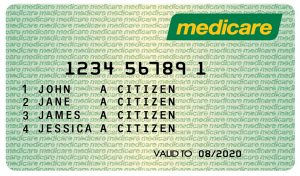
One of the biggest overhauls of the Medicare rebate system in decades is set to kick in next month, but doctors say more time is needed to figure out whether some patients will have to pay out-of-pocket costs.
More than 900 items on the Medicare Benefits Schedule (MBS) will be amended, with changes applying to general surgery, orthopaedic surgery, and cardiac services.
It follows a five-year review of the MBS to make sure procedures are evidence-based and cost-effective.
Here’s an overview of what is happening.
What do the Medicare scheme rebate changes involve?
The MBS is the list of health services that the federal government subsidises through Medicare rebates.
As part of this overhaul, hundreds of procedures and services on that list will be changed.
Changes include replacing rebates for some open, invasive surgical procedures with more commonly used keyhole surgical procedures.
Nine procedures have been deleted from the MBS entirely, and other changes may include tweaking the definitions of certain services.
There could be changes to the MBS fees for some procedures too.
Anand Deva, a breast and hand surgery professor from Sydney Hospital, said some of the changes were overdue.
“It’s about making sure the MBS schedule is used fairly, with less complexity, and reflects the actual procedure that was done,” he said.
But he wants more time for the new arrangements to be implemented.
“This is being rushed and not giving clinicians and patients enough time to get our heads around it,” he said.
Will I have to pay more for surgery?
It depends — and that is something doctors and patient groups want more time to figure out.
Currently, some surgical procedures are covered under multiple MBS items, such as one for bone grafting, and another for bone fusion that might together be used to repair a patient’s wrist.
Changes to the MBS will consolidate some of these items under one number.
While this will simplify the paperwork, it may mean some procedures will attract lower rebates than before, and patients could end up stumping up the gap.
Private Healthcare Australia chief executive Rachel David suggests people call their doctor and health fund to check what the fees will be.
But she wanted to reassure patients, saying most would not be worse off or pay increased out-of-pocket costs.
“For some items, and they are in the minority, the benefits will go down, but that was something that was discussed with clinicians during the process,” she said.
“With orthopaedic surgery, the funding has actually gone up for most of them.”
We don’t yet know how many people will be paying increased out-of-pocket costs, or how much, because many private clinics are still trying to figure out how the changes will affect their billing.
Why is it changing?
The changes are based on recommendations by an MBS Review Taskforce, which was launched following feedback from healthcare professionals and the broader community that some MBS items did not reflect clinical best practice.
The taskforce was made up of a large group of independent medical experts, and also consulted with patients and GPs.
Between 2015 and 2020 the taskforce reviewed more than 5,700 Medicare rebate items to make sure the procedures were evidence-based and cost-effective.
It made some recommendations throughout its review process and handed down its final report last December.
It recommended cutting rebates for some procedures because they are no longer being used widely by surgeons, or have been superseded by newer procedures like keyhole versus open surgery.
Why are there concerns?
The system could be confusing for patients who have surgery booked next month.
The chief executive of leading patient group Consumers Health Forum, Leanne Wells, said while she supported the process of updating the MBS, she was concerned the process had been rushed.
“The principle of taking items out of the MBS which are no longer clinically considered effective or which are outmoded is good,” she said.
“But the caution we have is, if that translates into more rising out-of-pocket costs for consumers, then that is a concern.”
Dr Deva said doctors may have already quoted patients a price for surgeries happening after July 1.
He said three weeks is not enough time to now contact them and discussed revised costs.
Both the Consumers Health Forum and the Australian Medical Association (AMA) are asking for a short pause on the introduction of the changes so patients can be better informed.
“It will be confusing for people who have surgeries booked from July and they will be asking questions to their doctors,” Ms Wells said.
“These changes have to be implemented systematically with everyone consulted and informed appropriately.”
What do doctors say?
The Australian Medical Association supports the changes to the MBS — but says it’s concerned that the private healthcare sector will not be ready for the July 1 changes.
“We still do not have all the information we need to assess and change over our schedules and payment processes to reflect the changes,” AMA president Omar Khorshid said.
“This will put significant financial and operational risk on health insurers and private hospitals, and leaves doctors and patients scrambling and confused about what and how to bill against Medicare and private health insurance policies come July 1.
“We simply don’t know what the rebates from funds will be, as they haven’t had the time to prepare and release them in advance — including for surgeries already booked for next month.”
Dr Khorshid said giving the private healthcare sector “just weeks instead of months to change over its entire system to support almost 1,000 changes leaves the health system and patients at risk”.
Dr Deva said “implementation will be chaotic” but supported changes to Medicare billing.
“Trying to reduce multiple numbers being used for one procedure is a good thing,” he said.
 Al-anwar Newspaper English news in Australia
Al-anwar Newspaper English news in Australia